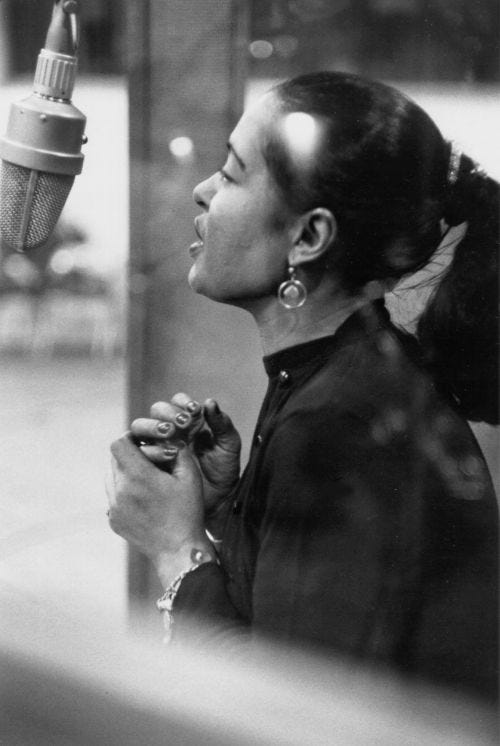No Woman, No Cry
Take a good look at my face
You used to fall apart in private. The tears came, sometimes subtly. You were watching a movie, a tv show, maybe a Kleenex commercial. Something was made to evince a feeling and it worked. The nickel went down the slot. You were pent and now a little less pent. Trauma porn. You need to feel to live, to produce, but not too much. You need to be in control. A staggering amount of songs are about crying. Elvis Costello, Big Tears. Smokey Robinson, Tracks of My Tears, Tears of a Clown. The Beatles, Cry Baby Cry, I’ll Cry Instead. Dylan, Where Teardrops Fall, Standing in the Doorway Crying, Cry a While. How about The Cure, Boys Don’t Cry. Is there a cure? As a man, you are taught to hold it back, until we do. It’s all over the Great American Songbook. I Cried For You. Cry Me a River. Even without the waterworks, the songs that hold up are the ones about falling apart. Exhibit A: “Body and Soul.”
My life a wreck you`re making
My heart is yours for just the taking
I`ll gladly surrender
Myself to you, body and soul
You live by the songs. This is one of the mightiest. But buyer beware. You are gladly surrendering your life to the person who is wrecking it. Was that in the fine print? When Billie Holiday sang it, it was “my life a hell you’re making.” She had been there and back, and she sounded like she did it just for you.
“Body and Soul” was written in 1930, nearly a century ago, when Freud was still alive. We now speak of being in touch with our emotions. I’m in touch with mine, but I was also bullied. Crying was for sissies back in Dallas, TX, but that was a long time ago. Sometimes, it takes generations to get the message. So cry, get it out, but then you don’t want to be that crazy guy on the subway. All in proportion. Now is the time for the Kleenex.
You walk into the cafe with dark sunglasses and big headphones, like you’re a traveling recording studio/therapy session. It’s all you. Overdubs for the parts, and for your personal crackup. No one can see what’s going on, but a song could get the waterworks going. You are in bereavement. If a little thing gets to you, it leads to a bigger thing. On the other side of the cafe, there is a woman. She’s wearing headphones, big ones like yours, circumaural. She’s crying, too, maybe even more than you are. You see her suffering, and you wonder, also suffering, if you can help. And if you can help her, you can help yourself, though that’s not why. She looks up, dries up.
Are you ok?
Yes.
Is she ok? She doesn’t want to talk about it. No woman, no cry, you think, but the conversation is over. You see a mirror image of yourself.
I am you. Your sorrow is mine.
You think if you can fix her, you can fix yourself. Something has been ripped apart, and this is how to mend it.
You have been crying every day since it happened, but not all day. Something will trigger it, and you get it out, and then you do what you have to do. People join support groups to share their common experience. But we can feel things even when the creator comes from another place. Joni Mitchell wrote a bereavement masterpiece, “Man From Mars,” about losing her cat. When we hear it, we are all cat ladies. But we can also feel the pain about losing the person, and that song knows us.
Years ago, you got dumped. It was stupid, but you took it really hard. The girl who poured you coffee noticed you looked sad. You told her you had your heart broken. She felt bad. Then she told you that her ex-husband murdered their daughter. The previous year. You asked her, how can you listen to my whiny problems when you went through that? No, she said, getting your heart broken is a big deal. You embraced and cried to each other.
I struggled with some demons, they were middle class and tame.
On the Q train. A stranger steps on your foot. You are irritated. Then you see he has a beautiful little boy. He looks up at you and you look at him. You aren’t irritated anymore
It’s 2001. You are sitting in a movie theatre, seeing David Lynch’s Mullholland Drive. Naomi Watts and Laura Harring are sitting in a dark theatre. All three of you are sitting in a dark theatre. They look down at you. You look up at them. They are you. They are witnessing Rebekah Del Rio performing an A cappella performance of Roy Orbison’s “Crying” in Spanish. The tears start gushing. And because you live and breathe and feel, you start crying, too. You don’t know why. But sitting in the dark, your defenses are down. You are with Naomi Watts and Laura Harring. Their tears trigger yours. When the lights go up, you can go back to being the person you’re supposed to be. Which one is real? They are both real. There are many of you. Keep losing farther, losing faster. They proliferate.




